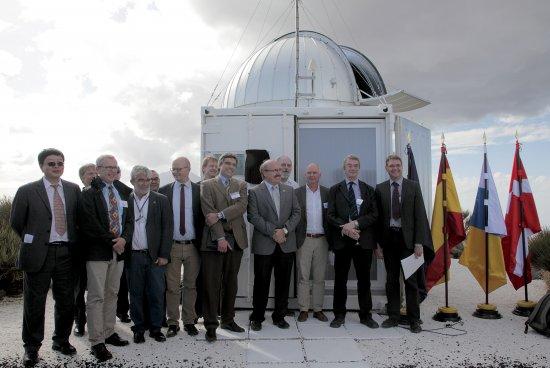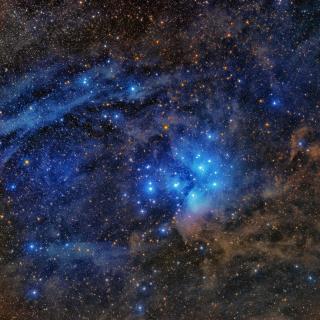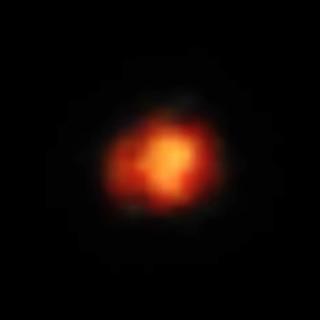The Hertzsprung telescope of the SONG network, for the study of the interiors of stars and the planetary systems which surround them, was officially inaugurated last Saturday, October 25th, at the Teide Observatory. This telescope was financed by the University of Aarhus, which leads the project, the Carlsberg Foundation, the VILLUM FONDEN foundation, the Danish Council for Independent Research/Natural Science (FNU), the European Science Foundation, the University of Copenhagen, and the Canarian Astrophysics Institute (IAC).
The inauguration ceremony was opened by Hans Kjeldsen, of the University of Aarhus, who acted as master of ceremonies, and who presented the first speaker, Rafael Rebolo, Director of the IAC. “This new telescope” he said ”which is now starting to operate at the Teide Observatory, is a further example of the genuine international collaboration which has always characterized the IAC and its observatories. It opens a new window on the exploration of the Universe which can be used by scientific institutions in the framework of a collaboration to which the IAC is permanently committed.
Next, Jorgen Christensen Dalsgaard, director of the Centre for Stellar Astrophysics of the University of Aarhus, and Principal Investigator of the SONG project, showed his high degree of satisfaction that the moment had arrived which had been awaited for so long and that this project which had, in his works “cost us blood sweat, and tears” is at last a reality. He went on to say “This is the start of a global project with links around the world to a first class installation”
Thomas Sinkjaer, of the Danish National Science Foundation, stated that with this telescope we are putting the final touch to a genuinely “Stellar Alliance”, (alluding to the film Star Wars), with a very ambitious objective: to study the stars and the planets which orbit around them. He noted that “ the biggest is not always the best” refereeing to the fact that the primary mirror of this telescope has a diameter of only 1 metre, but that it is precisely optimized for this kind of research. In addition, “we are not alone in this enterprise. The second node has already been constructed in China” a country which is a member of the SONG network. He reminded us that his foundation gives funding support only to projects which satisfy the following criteria: a great idea and extraordinary people working for it. And this telescope satisfies those criteria.
Thomas Bjornholm, associate director of research at the University of Copenhagen noted that the Teide Observatory is “of great value” to the island of Tenerife, and that this inauguration was a further proof of this. “As scientists we are not alone on this planet and we are collaborating precisely to discover life on other planets, which will be one of the objectives of the SONG project, and a great step forward for humanity”
Jinxin Hao, associate director of the National Astronomical Observatory of China said that he was very proud of the collaboration with the Danes, and announced that the inauguration of the SONG node in China would take place in less than a year, predicting that soon the project would produce spectacular scientific results. “SONG” he insisted “is China’s opportunity to perform front rank astronomy at low cost”
John Renner Hansen, Dean of Natural Sciences at the University of Copenhagen explained that although nowadays astronomy is mainly a question of working in the office to analyze the data obtained automatically, at the same time it is characterized by growing collaboration among institutions, and SONG is a proof of this.
For Niels Christian Nielsen, Dean of Science and Technology at the University of Aarhus, Saturday was a great day for Danish astronomy. He noted that one of the objectives of the collaboration is to find an answer to the question of whether the other planets in the Universe are homes to life. An in poetic vein he said, just before uncovering the commemorative plaque for the inauguration of the telescope that “with projects like this, we are making sure that the stars are always visible in Denmark”
In closing the inaugural act, Juan Ruiz Alzola, director of the Agency for Research, Innovation, and Society of Information of the Canarian Government, representing the president of the Autonomous Regional Government, renewed its commitment to continue supporting the IAC as a centre of excellence in research, and commented that this would be noticed in the budget to be approved this year.
Also present at the inauguration were the scientists in charge of the SONG collaboration, Pere Pallé for the IAC and Frank Grundahl for the University of Aarhus, as well as local, national and international political and scientific authorities
After the ceremony the over 100 guests attended a didactic explanation of the Hertzsprung telescope and were shown directly observations of the Sun, which at the moment has an impressive sunspot on its surface, showing its activity. The guests were also able to visit the various installations of the Observatory, dedicated to daytime and also nighttime observations.
- Timelapse film of the activities at the Teide Observatory, which took place during the official inauguration of the Hertzsprung telescope of the SONg network.
- Note for the Press: “Hertzsprung SONG” a new telescope at the Teide Observatory.



